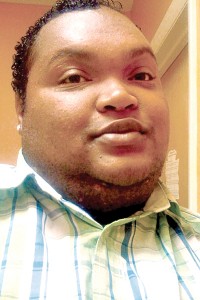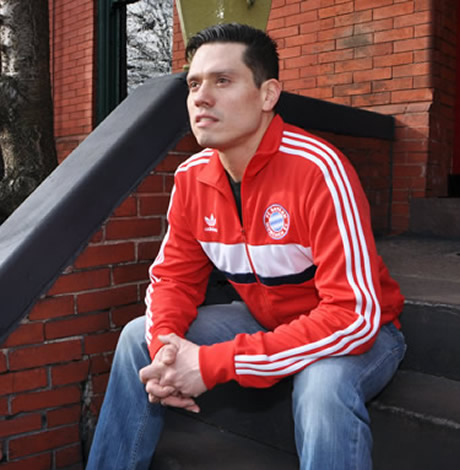Local
D.C. man found guilty in gay murder
Defendant accused of using chat line to lure ‘faggy’ for robbery

A D.C. Superior Court jury Tuesday found a District man guilty of first-degree murder while armed in the December 2009 shooting death of gay D.C. resident Anthony Perkins, whom police say met his killer through a gay telephone chat line.
The jury returned its verdict after deliberating for a little more than five hours following a five-day trial in which prosecutors said Antwan Holcomb, 21, shot Perkins in the head in Perkins’ car after luring him to a secluded street in Southeast Washington.
A witness who knew Holcomb testified that he overheard Holcomb say on the night of the murder that he “shot the ‘faggy’ in the head and robbed him of a pack of Newport cigarettes” before leaving Perkins’ Lincoln Town Car and fleeing the scene on foot.
“The price that the defendant put on the head of Mr. Perkins was a pack of cigarettes,” Assistant United States Attorney Steven Swaney, one of two prosecutors in the case, told the jury on Tuesday.
Chief Judge Lee Satterfield, who presided over the trial, scheduled Holcomb’s sentencing for May 5.
Perkins, 29, lived with his mother, Stella Perkins, who testified at the trial that her son’s murder was a devastating loss. He worked as a dispatcher for an air conditioning and heating company and enjoyed meeting people on phone chat lines, witnesses said during the trial.
Swaney and Assistant U.S. Attorney Michael Liebman presented law enforcement witnesses who pointed to phone records showing that Holcomb made repeated calls to a phone chat line called D.C. Raven. The chat line has separate lines for a variety of groups and interests, including a section with “gay chat numbers.”
Government witnesses testified that Holcomb met Perkins on the chat line on the night of Dec. 26, 2009 and engaged him in several conversations. The two exchanged their own phone numbers, the prosecutors said. Authorities later tracked the calls Holcomb made to Perkins on the night of the murder from a landline in a residence at 500 Lebaum St., S.E., where he had been staying.
“He stated that he posed as a homosexual in an attempt to lure a victim to his location for the purpose of robbing him,” according to a police affidavit used for Holcomb’s arrest in March 2010.
At the trial, prosecutors showed the jury a video of Holcomb being questioned by homicide detectives. Holcomb admitted to detectives that he talked to Perkins through the chat line and persuaded him to meet him on the night of the murder. But he denied he killed Perkins. Holcomb told the detectives in the taped interrogation that it was someone else who looked like him that entered Perkins’ car and shot Perkins. Police said Holcomb refused to identify that person.
The two prosecutors argued during the trial Holcomb fabricated that claim to get off the hook in the murder.
In the video recording of the interrogation session presented to the jury, one of the detectives joked with Holcomb about his decision to call a gay-oriented chat line. At one point, Holcomb said men using the chat line have money and likely would not report being robbed from someone they met through such a venue.
“I’m not of that nature … I’m a cold-blooded man,” he told the detectives. “I don’t like fags. I never will.”
At the time of Holcomb’s arraignment following his arrest in March 2010, Liebman told the Blade the U.S. Attorney’s office might consider asking a grand jury to classify the case as a hate crime. A subsequent grand jury indictment against Holcomb did not classify the case as a hate crime.
At the time the jury rendered its verdict Tuesday, a spokesperson for the U.S. Attorney’s office said Liebman and Swaney would not be immediately available to discuss the case.
Defense attorney Ronald Horton argued that there were no eye witnesses to the murder. He said one of the government’s lead witnesses, who said she saw Holcomb near the scene of the murder, was drunk at the time.
Horton said another key witness, a woman who once dated Horton, was biased against him because she caught him in bed with another woman. She should not be taken at her word for testifying that Holcomb entered her bedroom and placed a gun under the bed shortly after the murder took place, he told the jury.
He noted that Holcomb’s finger prints and DNA were not found inside Perkins’ car, supporting Holcomb’s claim that it was someone else that entered Perkins’ Lincoln Town Car and shot him point blank in the head.
Saying the jury was obligated under the law not to find Holcomb guilty unless the government proves its case beyond a reasonable doubt, told the jury, “This case is full of reasonable doubt.”
In his rebuttal arguments, co-prosecutor Swaney recited a litany of evidence he said provided proof beyond a doubt that Holcomb committed the murder.
Among other things, he pointed to Holcomb’s arrest for an unrelated incident on Dec. 12, in which he was charged with shooting two men outside the Player’s Lounge, a popular Southeast D.C. nightclub that has hosted events organized by gay activists.
Swaney pointed to police and firearm experts’ testimony that the bullet removed from Perkins’ head had been fired from the same gun that Holcomb allegedly used to shoot the two men outside the Player’s Lounge, one of whom is paralyzed from the waist down as a result of the gunshot wound.
Several letters that Holcomb wrote to a female friend while in jail following his arrest asked the friend to arrange for others to tell police that they saw someone other than Holcomb enter Perkins’ car on the night of the murder, Swaney noted to the jury. He called this a clear attempt by Holcomb to get people to help him conceal his involvement in a murder.
In addition to the first-degree murder charge, the jury found Holcomb guilty of armed robbery, unlawful possession of a firearm, and carrying a pistol without a license.
The D.C. group Gays and Lesbians Opposing Violence has raised concern over reports of gay men being targeted by criminals on telephone and Internet chat lines.
A widely reported case came four months after Perkins’ murder, when Montgomery County police disclosed that gay D.C. middle school principal Brian Betts, who was found murdered in his Silver Spring, Md., home last April, met one or more of the four teenage males charged in the case through an Internet sex chat line.
District of Columbia
Little Gay Pub to host April 25 celebration of life for Patrick Shaw
School teacher, D.C. resident praised for ‘warmth, humor, kindness’
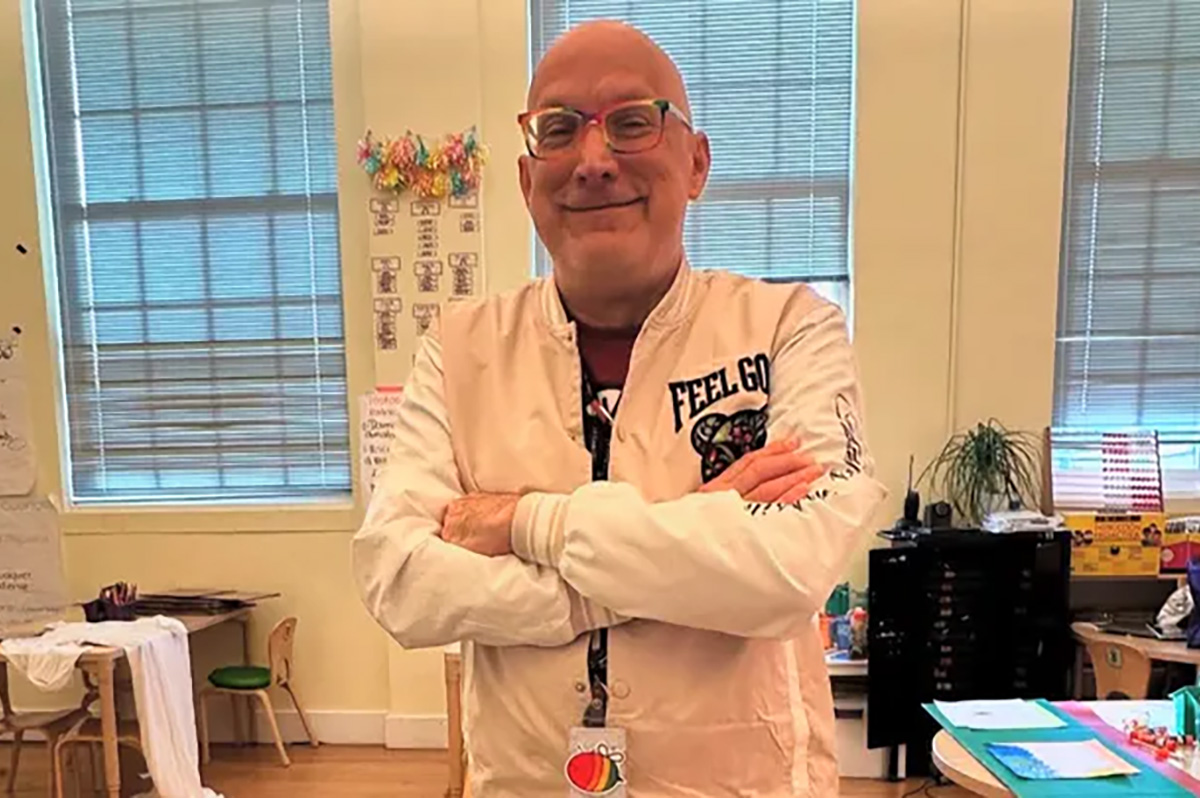
Co-workers and friends will hold a celebration of life for highly acclaimed schoolteacher and D.C. resident Patrick Shaw beginning at 5:30 p.m. Friday, April 25 at The Little Gay Pub 1100 P St., N.W.
Little Gay Pub co-owner and Shaw’s friend, Dusty Martinez, said Shaw passed away unexpectedly on April 19 from a heart related ailment at the age of 60.
“Patrick touched so many lives with his warmth, humor, kindness, and unmistakable spark,” Martinez said. “He was a truly special soul – funny, vibrant, sassy, and full of life and we are heartbroken by his loss.”
In an Instagram posting, Shaw’s colleagues said Shaw was a second-grade special education teacher at the J.F. Cook campus of D.C.’s Mundo Verde Bilingual Public Charter School.
“Patrick brought warmth, joy, and deep commitment to Mundo Verde,” his colleagues said in their posting. “His daily Broadway sing-alongs, vibrant outfits, and genuine love for his students filled our community with energy and laughter.”
The posted message adds, “Patrick was more than a teacher; he was a light in our school, inspiring us all to show up with heart, humor, and kindness every day. His spirit will be deeply missed.”
The Washington Blade is preparing a full obituary on Patrick Shaw to be published soon.
District of Columbia
D.C. police seek help in identifying suspect in anti-gay threats case
Victim threatened with assault, called ‘faggot’ as he left Capitals game
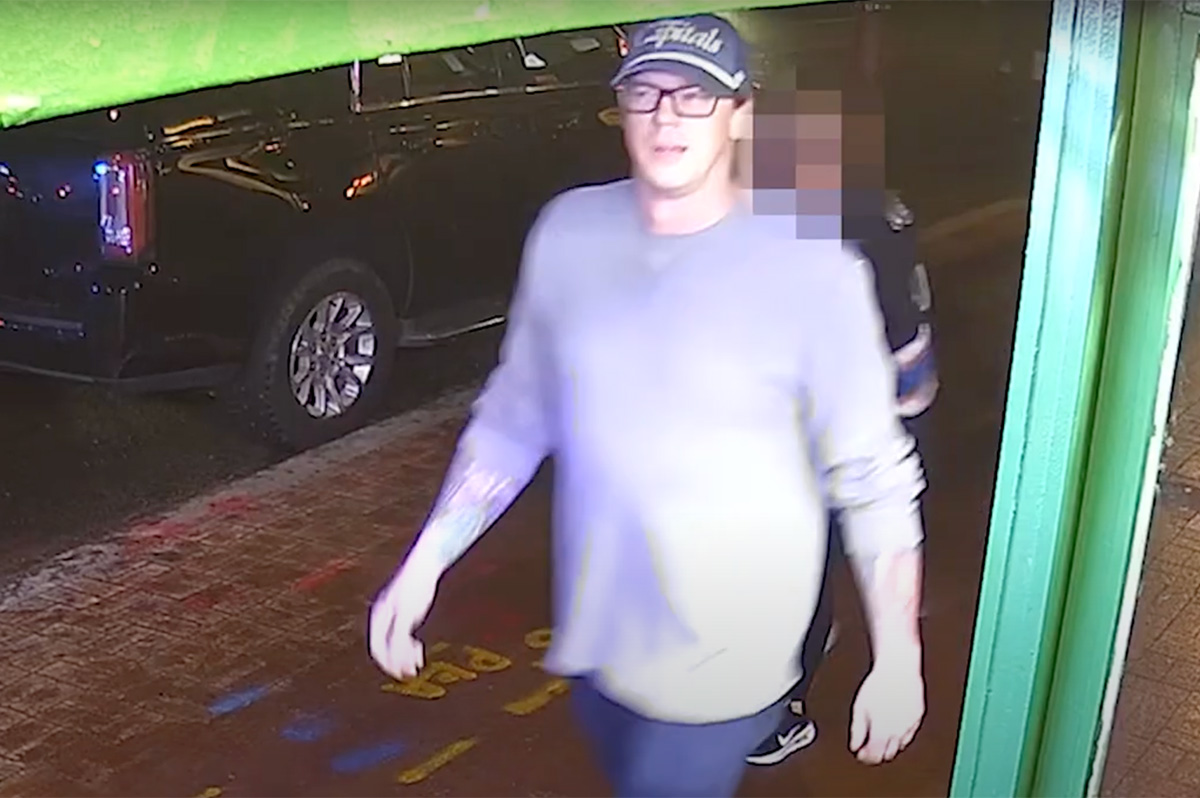
D.C. police are seeking help from the public in identifying a male suspect whose image was captured by a video surveillance camera after he allegedly shouted anti-gay slurs and threatened to assault a man at 6th and H Streets, N.W. on March 20 at about 9:54 p.m.
A police report says the victim told police the incident took place shortly after he exited the nearby Capital One Arena where he had attended a Washington Capitals hockey game.
The police report says the incident began when the victim saw the suspect yell a racist slur at a person behind the victim and started to berate a valet operator.
“Suspect 1 then turned his attention to Victim 1 and called him a ‘faggot’ among other homophobic slurs,” the report says. It says the victim then used his phone to record the suspect, prompting the suspect to walk away before returning and “snatching” the phone from the victim’s hand.
“Suspect 1 walked several feet as Victim 1 followed, requesting his phone back,” the report continues. “Suspect 1 stopped and turned to Victim 1 and while yelling other obscenities exclaimed ‘if you keep recording, I’m going to kick your ass.’” The report concludes by saying the victim was able to recover his phone.
It lists the incident as a “Threats To Do Bodily Harm” offense that is a suspected hate crime.
“Anyone who can identify this suspect or has knowledge of this incident should take no action but call police at 202-727-9099, or text your tip to the Department’s TEXT TIP LINE at 50411,” according to a separate police statement released April 23.
The statement says police currently offer an award of up to $1,000 to anyone who can provide information that leads to an arrest and indictment of the person or persons responsible for a crime committed in D.C.
D.C. police spokesperson Tom Lynch said the case has been under investigation since the incident occurred on March 20. He said the video image of the suspect, most likely obtained from a security camera from a nearby business, was released to the public as soon as it was obtained and processed through the investigation.
District of Columbia
Wanda Alston Foundation names new executive director
Longtime LGBTQ rights advocate Cesar Toledo to succeed June Crenshaw
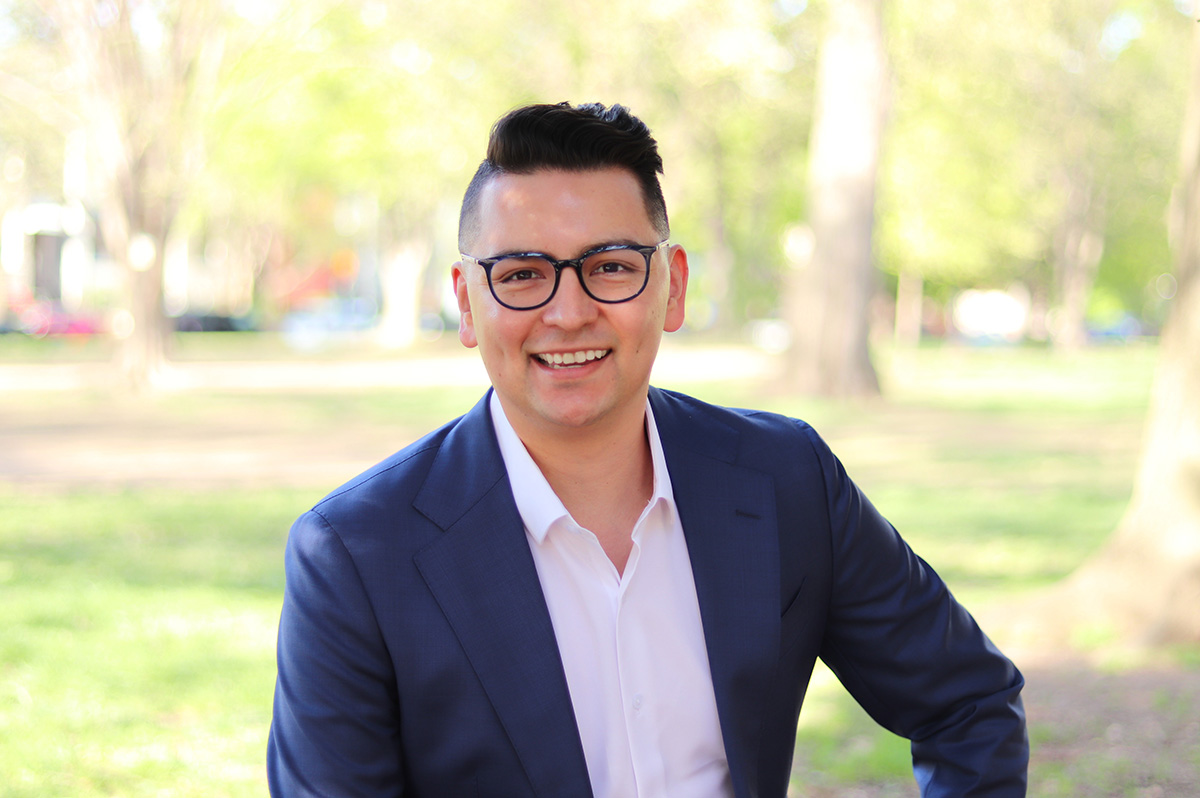
The Wanda Alston Foundation, the D.C.-based organization that has provided housing and support services for homeless LGBTQ youth since its founding in 2008, announced it has appointed longtime LGBTQ rights advocate Cesar Toledo as its new executive director.
In an April 22 statement, the organization said that as part of a planned leadership transition launched in November 2024, Toledo will succeed June Crenshaw, who Alston Foundation officials and LGBTQ community activists say has led the organization with distinction in her role as executive director for the past nine years.
In a statement released last November, the foundation announced Crenshaw was stepping down from her role as executive director after deciding to “to step into her next chapter.”
“June’s leadership has been truly transformative,” said Alston Foundation Board Chair Darrin Glymph in the group’s April 22 statement. “We are immensely grateful for her dedication and equally excited for the energy and experience that Cesar brings to lead us into this next chapter,” Glymph said.
“A seasoned LGBTQ+ advocate, Cesar brings over a decade of experience leading national campaigns, shaping public policy, and building inclusive communities,” the statement released by the group says. “Most recently, he served as the National LGBTQ+ Engagement Director for the Harris for President Campaign and has built a career focused on advancing equality and equitable education,” it says.
Biographical information about Toledo shows that immediately prior to working for the Harris For President Campaign, he served since April 2023 as deputy director for Democrats for Education Reform DC (DFER DC), a political group that helps to elect candidates for public office committed to quality education for all students, including minorities, people of color and LGBTQ youth.
Before joining DFER DC, Toledo served as political director for the LGBTQ+ Victory Fund, where he assisted in electing out LGBTQ candidates to all levels of public office across the U.S.
“I’m really excited about joining the Wanda Alston Foundation,” Toledo told the Washington Blade. “After a decade of working at the intersection of politics and policy and advancing political candidates and equitable education here in D.C., I wanted to shift my career to direct services to the most vulnerable folks in the LGBTQ+ family and our homeless youth,” he said.
Among other things, he said he would push for increasing the Alston Foundation’s visibility and mainlining its services for LGBTQ youth at a time when the national political climate has become less supportive.
A statement on its website says the Alston Foundation was founded in 2008 “in memory of Wanda Alston, a fierce LGBTQ+ activist, national advocate, and government official who was admired by District residents.”
The statement adds, “The foundation opened the first housing program in the nation’s capital in 2008 providing pre-independent transitional living and life-saving support services to LGBTQ+ youth.”
In a separate statement, the Alston Foundation announced it would hold a “thank you” celebration of appreciation for June Crenshaw from 6-8 p.m. on May 20 at Crush Dance Bar located at 2007 14th Street, N.W. in D.C.
“Let’s come together to celebrate her dedication and commitment for everything she has done for the LGBTQIA homeless youth population,” the statement says.
-

 Federal Government2 days ago
Federal Government2 days agoHHS to retire 988 crisis lifeline for LGBTQ youth
-

 Opinions2 days ago
Opinions2 days agoDavid Hogg’s arrogant, self-indulgent stunt
-

 District of Columbia2 days ago
District of Columbia2 days agoD.C. police seek help in identifying suspect in anti-gay threats case
-

 Opinions2 days ago
Opinions2 days agoOn Pope Francis, Opus Dei and ongoing religious intolerance

